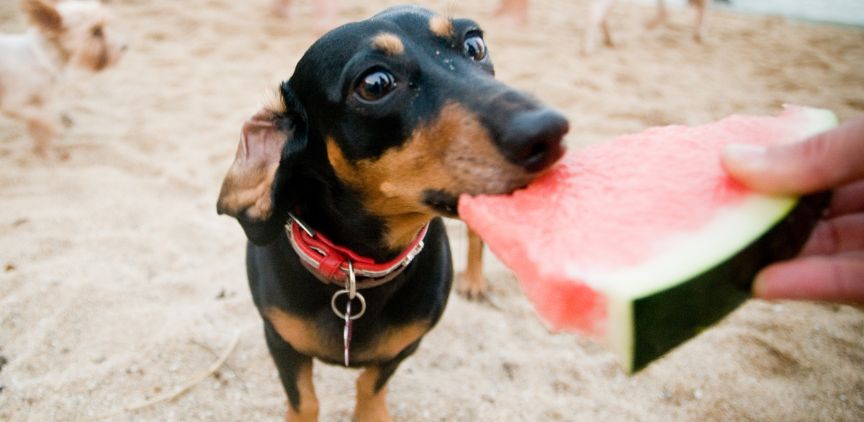Feeing Our Furry Friends
We love to spoil our four-legged fur babies, and one way to do that is by indulging them with a perpetual supply of tasty morsels. But before you share your food with them, you might want to know that some seemingly harmless, extremely common human foods can be toxic to our beloved pets. We’ll look at some of the best and worst pet food for dogs and cats and what you should look out for in the best pet food.
Dogs - The Good
Most dogs are gluttons, but some can be picky eaters. Here are some types of food that should go into your dog’s daily diet.
High-Quality Dog Food
Wet dog food offers all the nutrition of dry kibble but with added moisture content; this makes it an ideal choice for senior dogs or those with dental issues, as it is easier to chew and digest than dry food.
Dry dog food has a longer shelf life than wet food and contains fewer calories per serving than wet dog food, making it a great choice for older dogs or those who tend to overeat.
When buying dog food, always look for natural ingredients such as real meat, fruits and vegetables, healthy fats and oils, vitamins & minerals, grains & starches, probiotics & enzymes, antioxidants & fiber.
These products often contain fewer preservatives and additives than other types of pet food on the market today.
Healthy Snacks
Offering your canine friend a healthy snack can be both tasty and beneficial for their health. Whether you're giving treats for training or just as a reward, a wide variety of healthy snacks provide the essential nutrition your pup needs.
Instead of traditional dog food snacks, look for options like fresh fruits and vegetables. Carrots make great crunchy chew sticks, and apples provide a variety of vitamins and minerals.
Another great option is pumpkin. Dogs love the taste, plus it helps with digestion and firm stools. In the warmer months, you can also try frozen broth cubes flavored naturally with meat or vegetables; this will help keep your pup hydrated while providing them with essential protein.
When selecting healthy snacks for your furry companion, it's important to look at the ingredients list on each product to ensure they offer nutritional value with every bite.
Related Search Topics (Ads)
Dogs - The Bad
Feeding your dog the wrong foods can be detrimental to their health, so it's important to know what foods are off-limits for pups.
Low-quality commercial dry food can be filled with dangerous ingredients such as preservatives and additives. Not only can these put your pet's health at risk, but some can even be toxic and lead to long-term health problems.
In addition, certain human snacks you may think of sharing with your pet should always be avoided due to their high fat and sugar content, such as chips and sweets.
A piece of chocolate may sound harmless, but it can cause vomiting, seizures, and even death in dogs when ingested. Onions, garlic, grapes, and raisins are all extremely harmful, processing through their bodies differently than humans and causing an array of serious illnesses or even poisoning when consumed.
As much as your pup will beg for them (or try to steal them!), sharing table scraps should be done in moderation.
Cats - The Good
Like many living creatures, cats are remarkable athletes that need top-notch nutrition to stay in the game, whether chasing after a toy or jumping on your furniture.
Choosing Cat Food
When it comes to choosing the right cat food, you want to ensure your furry friend is getting the nourishment they need. To choose the best cat food, it is important to know the most essential components of a good diet and select a formula that meets your cat’s individual needs.
Start by exploring proteins like fish, poultry, eggs, and beef, as well as carbohydrates like barley and brown rice. Make sure that vitamins, minerals, and fatty acids such as taurine are also added.
Read labels carefully for types of fats used in pet foods. These should include vegetable oils such as coconut oil or flaxseed oil with no animal fat sources included.
Snacks For Cats
When it comes to treats, look for low-calorie options like fresh or freeze-dried raw meats, fish, eggs, organ meats, and vegetables that are free from additives, preservatives, or added sugar. Avoid sugary snacks as they can cause obesity and dental problems in cats. Instead, look for protein-heavy natural snacks such as cooked poultry or fish without sauce, steamed vegetables, or baked sweet potatoes with no seasoning.
Store-bought treats often have loads of chemicals and preservatives added, so if you are into cooking, you can experiment with making homemade cat snacks for your furry friend. Salmon and tuna can easily be baked into yummy treats, and you can feed them to your cat guilt-free!
Cats - The Bad
Many common human foods can be very unhealthy for cats, so it's important to think carefully about what you feed them. Dairy products like milk and cheese can cause gastrointestinal problems for cats, such as stomach upset or diarrhea.
Artificial sweeteners found in many processed foods are toxic for cats if ingested. Like dogs, many human snacks such as chocolate, onions, garlic, and grapes contain high concentrations of toxins that could cause irreversible damage to your cat’s body.
Final Thoughts
Our pets are part of the family, and we want to do what’s best for them, so it's good to learn about the best and worst pet food. Stick with healthy, nutritious food choices and stay away from processed, chemical-laden foods, and your pet will be a happy, healthy furball.
In addition, pay attention to what foods can be toxic to cats and dogs. Not all human foods are suitable for their consumption, so keep this well out of the way, especially if your furball is a notorious food-stealing thief!

